The Liberal Unionist Party was a British political party that was formed in 1886 by a faction that broke away from the Liberal Party. Led by Lord Hartington and Joseph Chamberlain, the party formed a political alliance with the Conservative Party in opposition to Irish Home Rule. The two parties formed the ten-year-long coalition Unionist Government 1895–1905 but kept separate political funds and their own party organisations until a complete merger was agreed in May 1912.
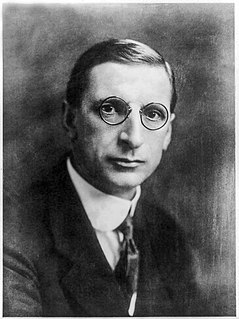
The Irish general election of 1918 was that part of the 1918 United Kingdom general election which took place in Ireland. It is now seen as a key moment in modern Irish history because it saw the overwhelming defeat of the moderate nationalist Irish Parliamentary Party (IPP), which had dominated the Irish political landscape since the 1880s, and a landslide victory for the radical Sinn Féin party. It had never stood in a general election, but had won six seats in by-elections in 1917–18. Sinn Féin had vowed in its manifesto to establish an independent Irish Republic. In Ulster, however, the Unionist Party was the most successful party.

The 1918 United Kingdom general election was called immediately after the Armistice with Germany which ended the First World War, and was held on Saturday 14 December 1918. The governing coalition, under Prime Minister David Lloyd George, sent letters of endorsement to candidates who supported the coalition government. These were nicknamed "Coalition Coupons", and led to the election being known as the "coupon election". The result was a massive landslide in favour of the coalition, comprising primarily the Conservatives and Coalition Liberals, with massive losses for Liberals who were not endorsed. Nearly all the Liberal M.P.s without coupons were defeated, although party leader H.H. Asquith managed to return to Parliament in a by-election.
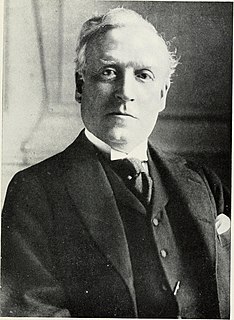
The December 1910 United Kingdom general election was held from 3 to 19 December. It was the last general election to be held over several days and the last to be held prior to the First World War (1914–18).

The January 1910 United Kingdom general election was held from 15 January to 10 February 1910. The government called the election in the midst of a constitutional crisis caused by the rejection of the People's Budget by the Conservative-dominated House of Lords, in order to get a mandate to pass the budget.

North Down is a parliamentary constituency in the United Kingdom House of Commons. The current MP is Sylvia Hermon, first elected in the 2001 general election. Hermon represented the constituency on behalf of the Ulster Unionist Party until 2010, subsequently sitting as an Independent.
The Irish Unionist Alliance (IUA), also known as the Irish Unionist Party or simply the Unionists, was a unionist political party founded in Ireland in 1891 from the Irish Loyal and Patriotic Union to oppose plans for home rule for Ireland within the United Kingdom of Great Britain and Ireland. The party was led for much of its existence by Colonel Edward James Saunderson and later by William St John Brodrick, Earl of Midleton. In total, eighty-six members of the House of Lords affiliated themselves with the Irish Unionist Alliance, although its broader membership was relatively small.

The Ulster Volunteers was a unionist militia founded in 1912 to block domestic self-government for Ireland, which was then part of the United Kingdom. The Ulster Volunteers were based in the northern province of Ulster. Many Ulster Protestants feared being governed by a Catholic-majority parliament in Dublin and losing their local governance and strong links with Great Britain. In 1913, the militias were organised into the Ulster Volunteer Force (UVF) and vowed to resist any attempts by the British Government to impose Home Rule on Ulster. Later that year, Irish nationalists formed a rival militia, the Irish Volunteers, to safeguard Home Rule. In April 1914, the UVF smuggled 25,000 rifles into Ulster. The Home Rule Crisis was halted by the outbreak of World War I in August 1914. Many UVF members enlisted with the British Army's 36th (Ulster) Division and went to fight on the Western Front.
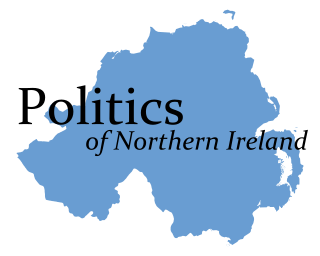
The 1986 Northern Ireland by-elections were fifteen by-elections held on 23 January 1986, to fill vacancies in the Parliament of the United Kingdom caused by the resignation in December 1985 of all sitting Unionist Members of Parliament (MPs). The MPs, from the Ulster Unionist Party, Democratic Unionist Party and Ulster Popular Unionist Party, did this to highlight their opposition to the Anglo-Irish Agreement. Each of their parties agreed not to contest seats previously held by the others, and each outgoing MP stood for re-election.

The Irish Home Rule movement was a movement that campaigned for self-government for Ireland within the United Kingdom of Great Britain and Ireland. It was the dominant political movement of Irish nationalism from 1870 to the end of World War I.
The Manchester South by-election was a Parliamentary by-election. It returned one Member of Parliament to the House of Commons of the Parliament of the United Kingdom, elected by the first past the post voting system.
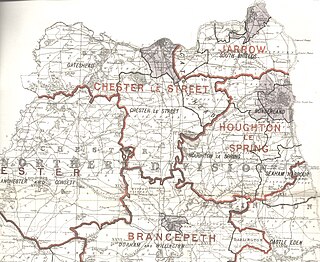
The North West Durham by-election was a Parliamentary by-election held on 30 January 1914. It returned one Member of Parliament to the House of Commons of the United Kingdom, elected by the first past the post voting system.
The Wick Burghs by-election was a Parliamentary by-election. It was a Scottish Highland constituency that returned one Member of Parliament to the House of Commons of the United Kingdom, elected by the first past the post voting system. The constituency was a district of burghs representing the parliamentary burghs of Cromarty, Dingwall, Dornoch, Kirkwall, Tain and Wick. The by-election took place during the third anniversary of the Liberal Government's re-election of December 1910. It was thought to be a key indicator to the outcome of the following general election anticipated to take place in 1914-15.
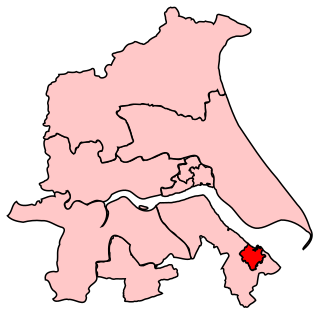
The Great Grimsby by-election was a Parliamentary by-election. It returned one Member of Parliament to the House of Commons of the United Kingdom, elected by the first past the post voting system. It was one of the last by-election contests to take place before the outbreak of war, and provided a good indicator of how the main parties would have performed at an anticipated 1914/15 general election.
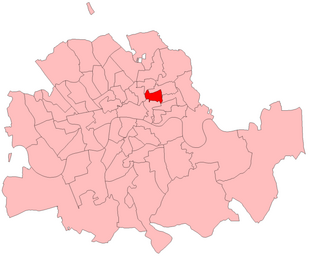
The Bethnal Green South West by-election was a Parliamentary by-election. It returned one Member of Parliament to the House of Commons of the United Kingdom, elected by the first past the post voting system.

The Linlithgowshire by-election was a Parliamentary by-election. It returned one Member of Parliament to the House of Commons of the United Kingdom, elected by the first past the post voting system.
The Midlothian by-election was a Parliamentary by-election. It returned one Member of Parliament to the House of Commons of the United Kingdom, elected by the first past the post voting system.
The East Antrim by-election of 1919 was held on 27 May 1919. The by-election was held due to the appointed commander of the Irish guards of the incumbent Irish Unionist MP, Robert McCalmont. It was won by the Independent Unionist candidate George Boyle Hanna.
The East Antrim by-election of 1913 was held on 19 February 1913. The by-election was held due to the death of the incumbent Irish Unionist MP, James McCalmont. It was won by the Irish Unionist candidate Robert McCalmont, who was unopposed.











